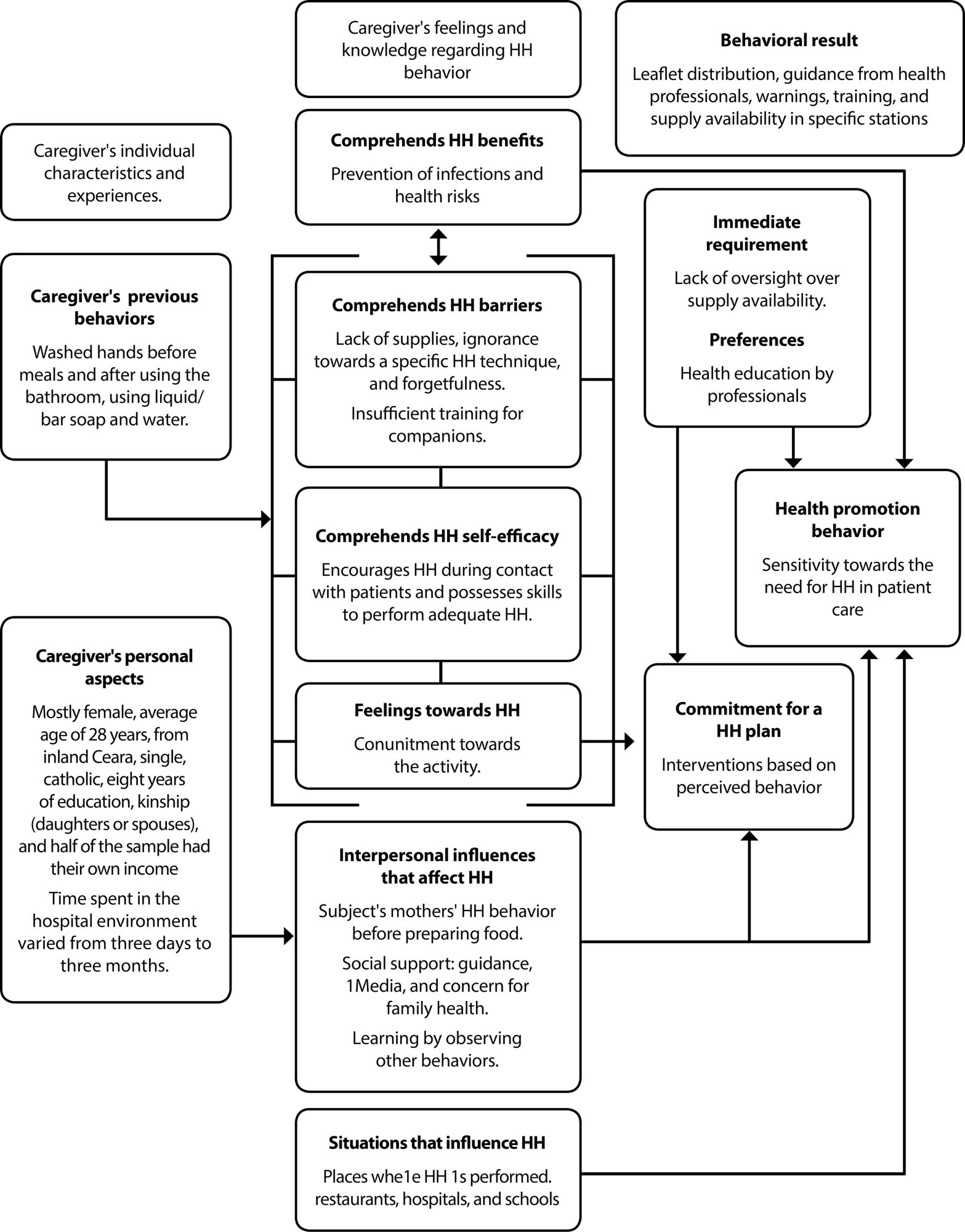Revista Brasileira de Enfermagem. 09-29-2022;75(1):e20210012

to analyze hand hygiene determinants of informal caregivers in a hospital environment.
qualitative study conducted with 55 caregivers at a university hospital in the Northeast of Brazil. A semi-structured instrument was used, adapted from Nola Pender’s Health Promotion Model, from which the deductive categories were derived.
the general behavior included hand hygiene before meals and after using the bathroom. Sensitivity to the requirements for hand hygiene was observed, but the barriers and self-efficacy consisted of the availability of soap or alcohol-based hand sanitizers, the lack of knowledge on the importance of and forgetfulness of the practice. The reinforcement on the importance of the practice and being in a contaminated environment were influencers, and commitment, warnings, and training were indispensable.
benefits related to protection from infections were seen as positive determinants for hand hygiene adherence. For non-adherence, factors such as lack of sanitizing supplies, ignorance towards the importance of the activity, and forgetfulness stood out.
Search
Search in:


Comments